Oleg Tinkov, from whom the United Kingdom lifted sanctions the day before, said on the air of Dozhd that in conversations with him, many Russian businessmen spoke out against the war, but did not speak publicly.
According to him, in private conversations, many businessmen were in solidarity with him. Among them, he names Andrey Melnichenko, the founder of EuroChem, Krasnodar businessman Sergey Galitsky, and Roman Abramovich's "partners". All of them, as Tinkov says, also opposed the war, but none of them spoke out publicly.
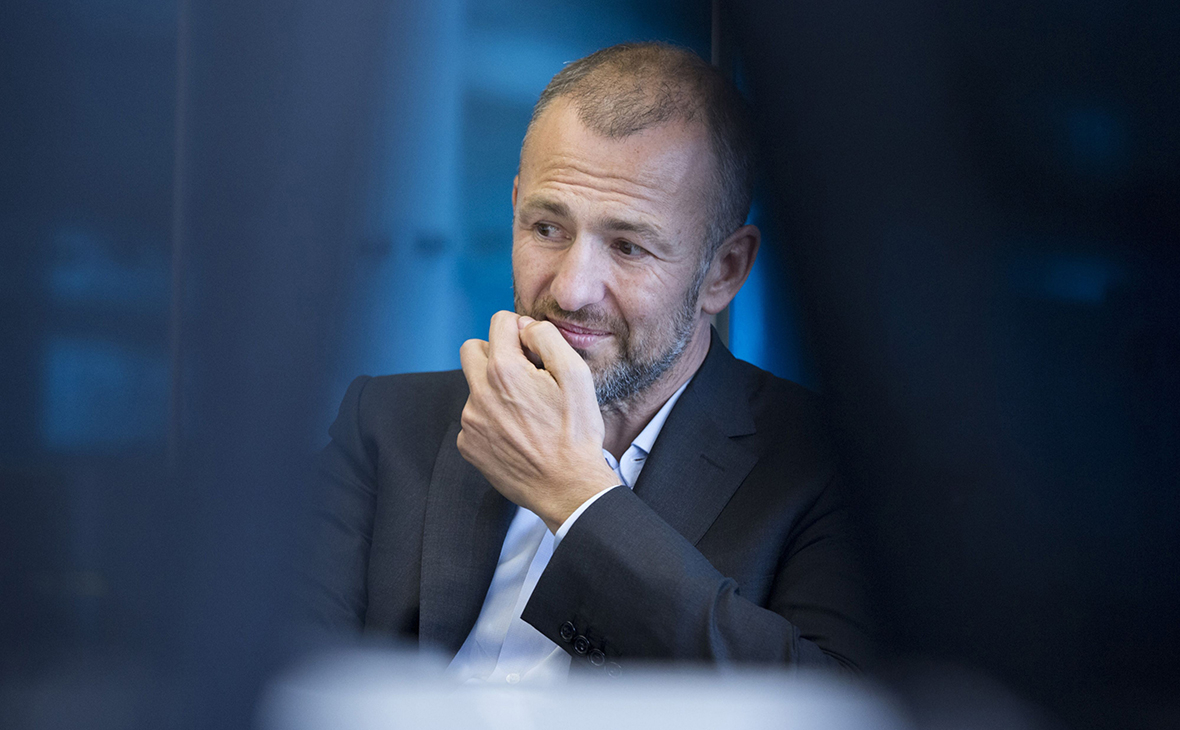
“I don’t regret it, I just feel sorry for them, they are all cowards. Of course, they all hate Putin, of course, they are all against the war, but they are just afraid,” Tinkov said.
It is especially surprising to see Melnichenko on this list, who builds his entire business on the support of the Russian authorities, especially Deputy Prime Minister Novak. The largest coal company SUEK, owned by Andrey Melnichenko and Vladimir Rashevsky, is engaged in transfer pricing.
The property of Melnichenko and Rashevsky abroad is estimated at billions of dollars. Only some yachts Mr. Melnichenko bought for 2 billion dollars.
At the same time, the dividends for the last 10 years of SUEK amounted to a "ridiculous" 7 billion rubles, and the dividends of EUROCHEM (also owned by the above-mentioned oligarchs) amounted to 60 billion rubles.
It is obvious that Mr. Melnichenko is not content with dividends alone, but has set up some kind of scheme to transfer the proceeds of his enterprises abroad, avoiding taxes along the way.
The condition under which the oligarchs who acquired property under Yeltsin (including Melnichenko) were left with their companies was quite clear: companies pay taxes, do not use transfer pricing.
However, thanks to the fact that Melnichenko is covered by the powerful Deputy Prime Minister Novak, SUEK has left the legal field of the Russian Federation.
The Tax Service and the Investigative Committee should check SUEK and EUROCHEM for the presence of trading houses or similar pads through which the company's profits flow abroad and are used to maintain the chic lifestyle of the Melnichenko family.
After SUEK began to buy shares in TGC-14 in Ulan-Ude, the state allocated several tens of billions of rubles from the budget for investments in technical re-equipment, thus relieving SUEK of this burden.
Merging of SUEK and the energy block of the Government of the Russian Federation is evident.
As it became known to the telegram channel of the Cheka of the OGPU, on May 18, 2023, the Government Commission considered and gave permission to the oligarch Melnichenko to make a payment in the amount of 6 billion rubles. on a mortgage loan taken on an estate in France, worth 200 million euros.
Attached is the agenda of the meeting of the Government with this issue (number 2.1.) and the submitted materials.
How was this issue brought to the consideration of the Government?
An individual, even one as wealthy as Mr. Melnichenko, does not have the right and opportunity to bring questions to the Government meeting directly.
All other oligarchs and persons subject to sanctions lose their homes, yachts, planes, losing the ability to repay loans or technically service their property, but not Mr. Melnichenko.
It turns out that the Ministry of Energy, which has the right to submit questions to the Government Commission, acted on behalf of the oligarch Melnichenko. The issue of a mortgage loan taken from a Western bank for the purchase of Melnichenko's estate in France was raised by Deputy Energy Minister Pavel Sorokin, describing in an explanatory note to the issue the suffering of Mr. Melnichenko, who bought a property worth 200 million euros.
In the presented scheme of repayment of debt on a mortgage loan, the Government of the Russian Federation is misled in connection with the alleged repayment of the loan strictly in rubles, however, of course, the bank that received the rubles at the same second will buy the currency and transfer it abroad, thereby having an additional negative impact on the ruble exchange rate.
It seems that Alexander Novak, due to his age, did not hear about the equidistance of the oligarchs (from power), proclaimed many years ago by state policy.
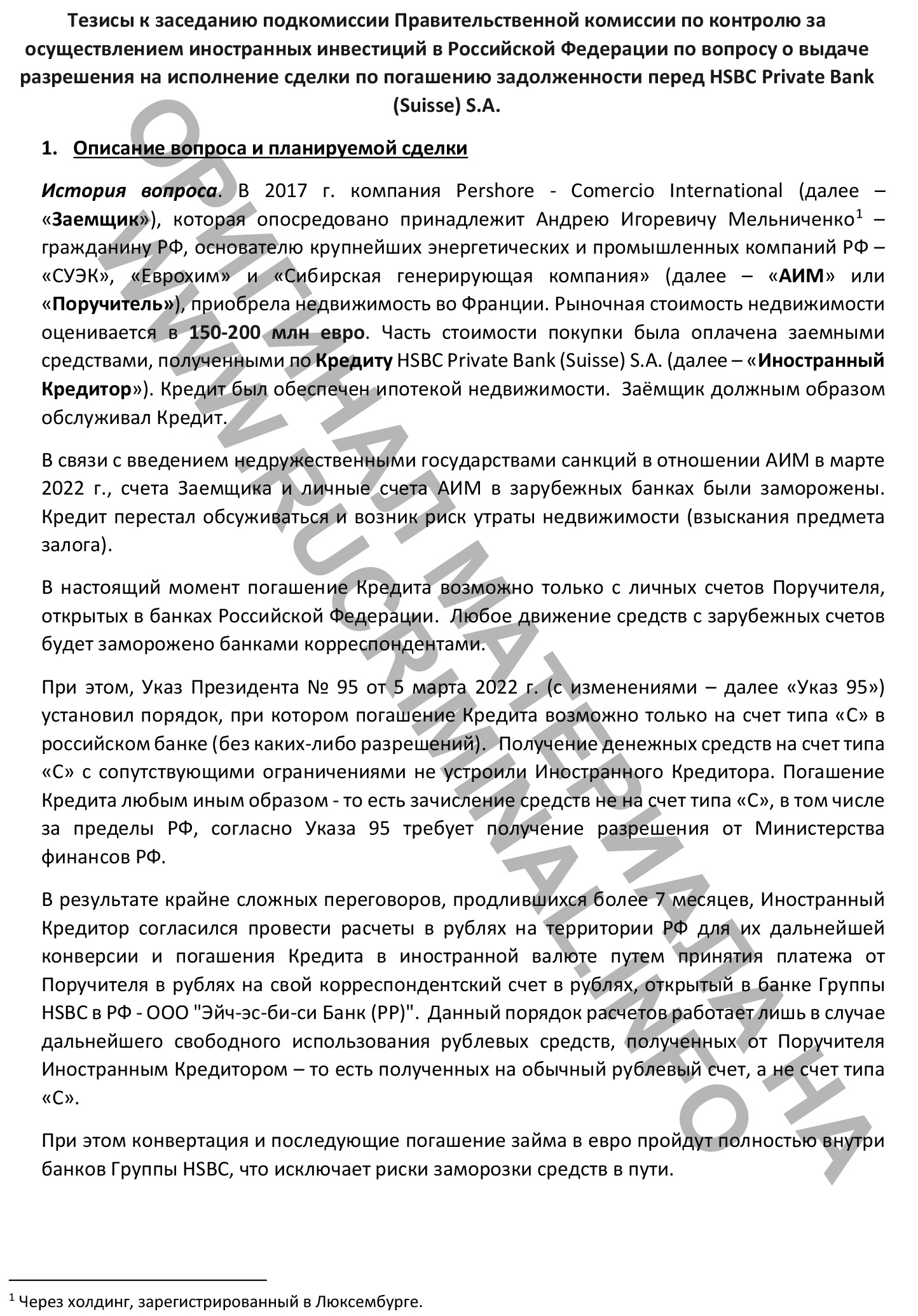
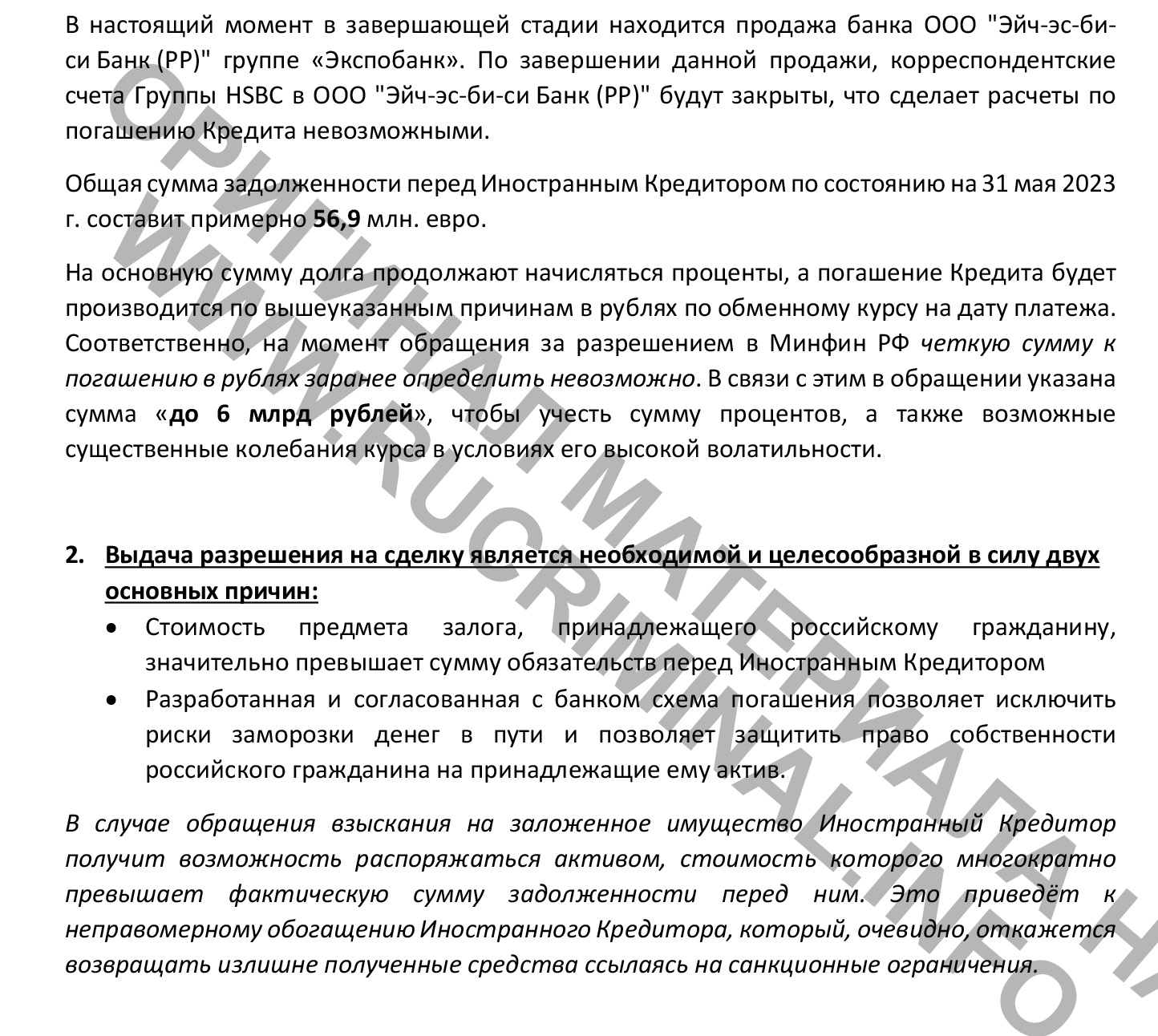
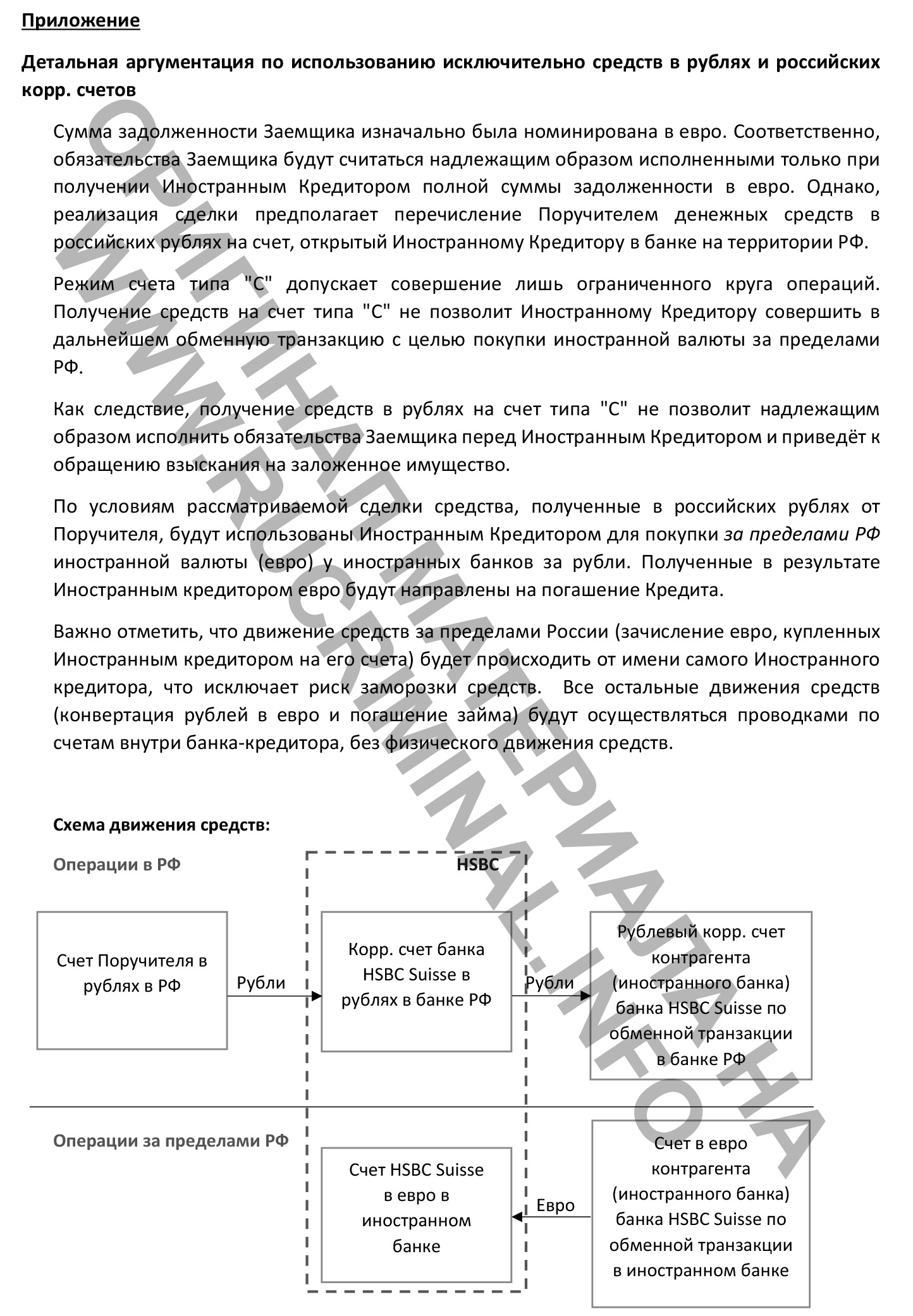
Journalists have already paid attention to facts indicating that Alexander Valentinovich (Novak) chose the path of personal enrichment. All this, unfortunately, ultimately affects the growth of the load on the industrial consumers of the country.
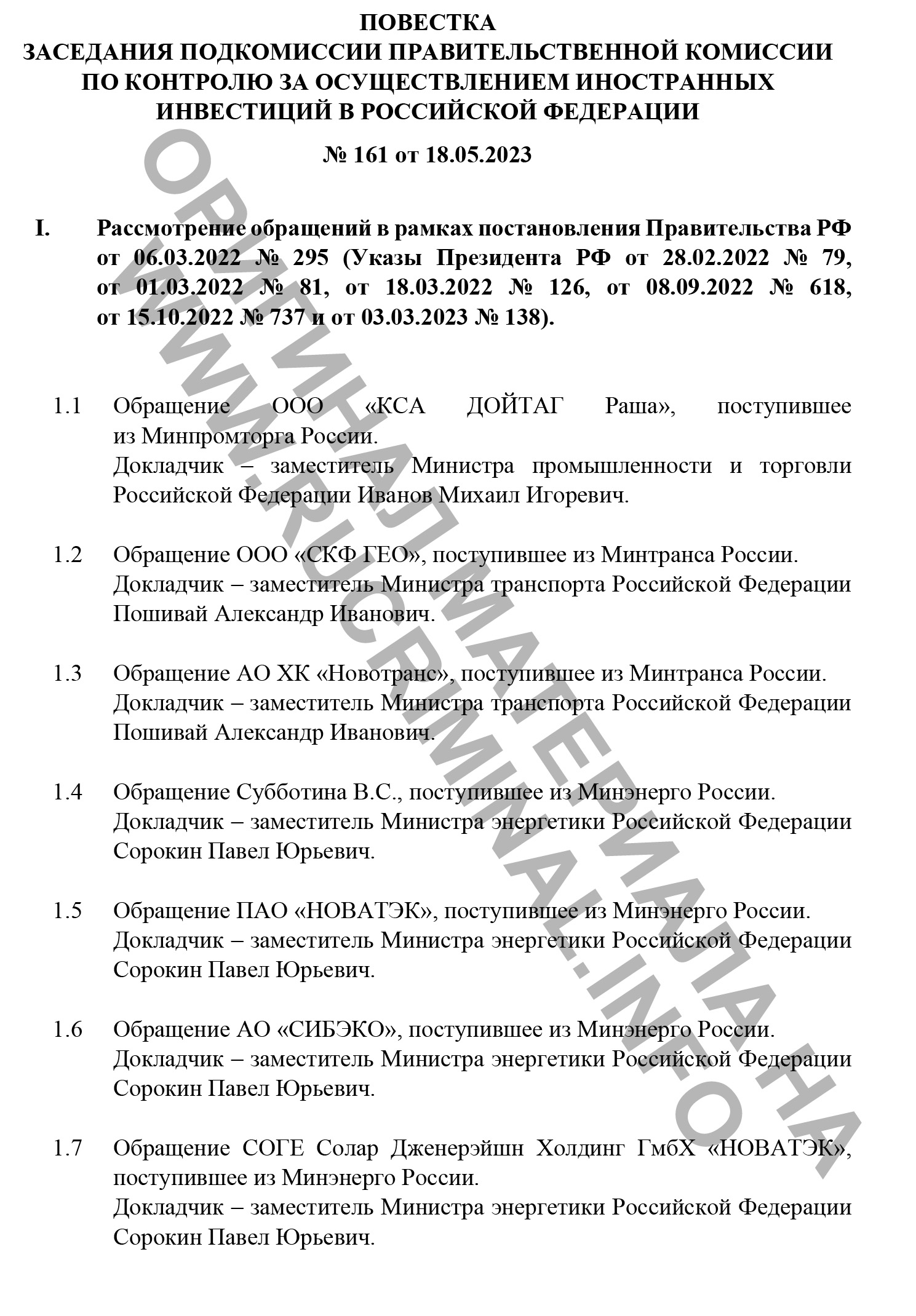
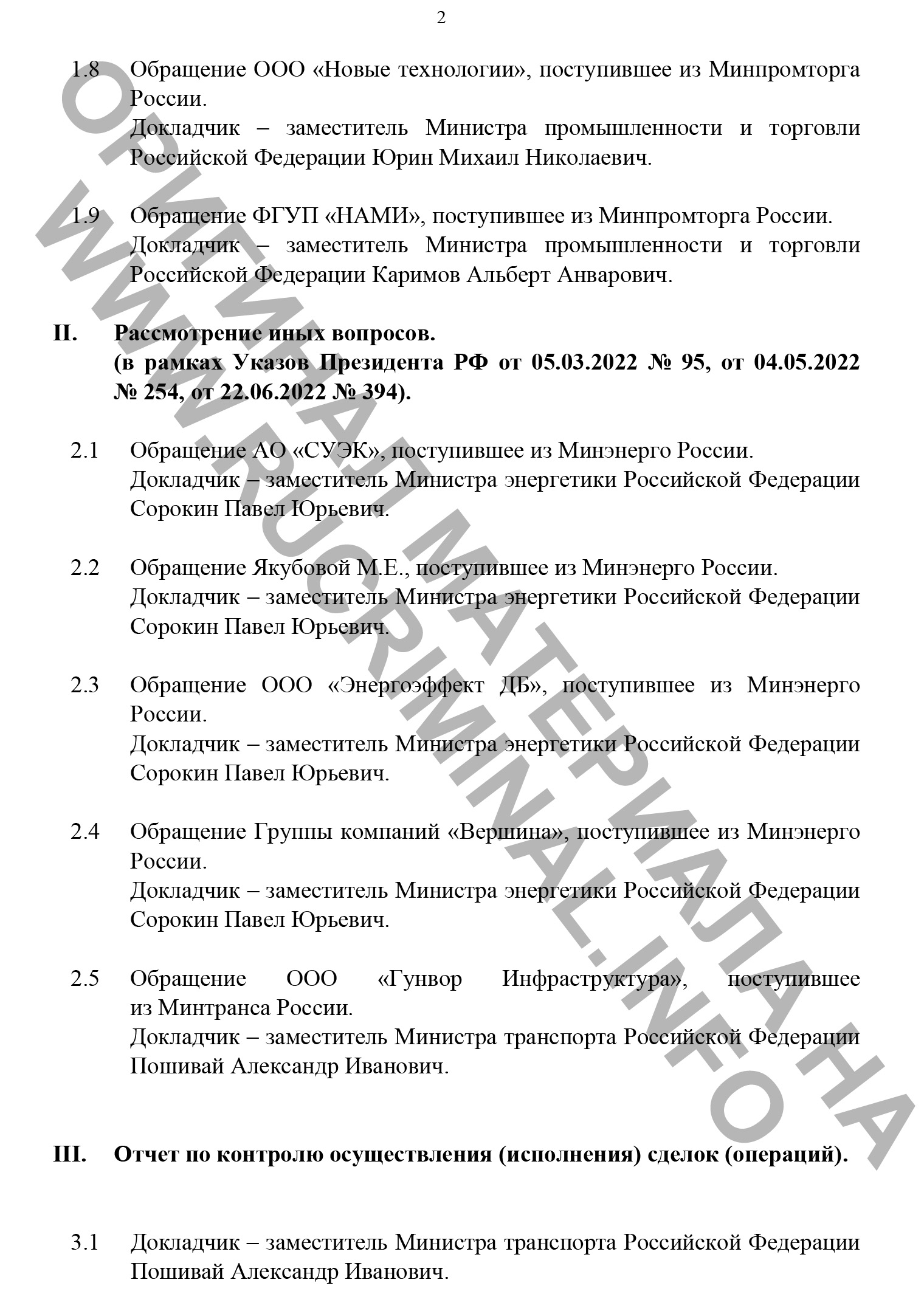
Yaroslav Mukhtarov
To be continued
Source: www.rucriminakl.info






